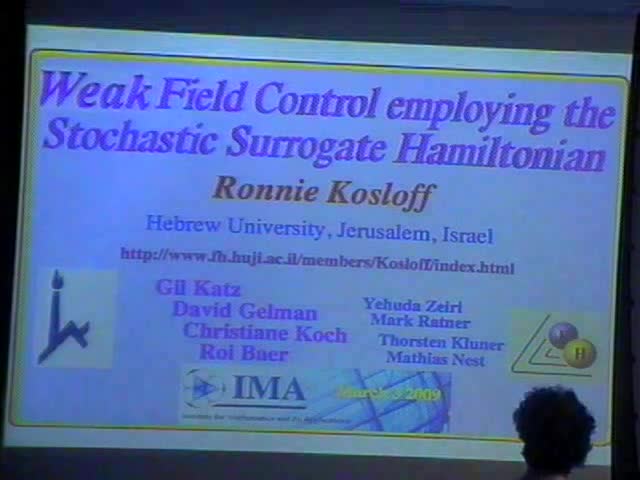Weak field control employing the stochastic surrogate Hamiltonian
Presenter
March 3, 2009
Keywords:
- Modulation
MSC:
- 94B12
Abstract
Joint work with Gil Katz, David Gelman, Mark Ratner and Ronnie Kosloff.
Simulation of many body quantum dynamics scales exponentially
bad with the number of
degrees of freedom. Many methods are devoted to obtain a
restricted many body wavefunction
which still are able to approximate the quantum dynamics. In
the context of system
bath dynamics the surrogate Hamiltonian method the dynamics is
simplified by replacing the
bath Hamiltonian by a simpler version which describes the bath
faithfully up to a specified
time. The computation task becomes even more formidable when
the dynamics takes place
at a finite temperature, then formally the wavefunction has to
be replaced with a density
operator. We present a stochastic methods which allows to
describe finite temperature dynamics
within a wavefunction description. The stochastic methods are
applied for the initial
thermal sampling. In addition the dynamical description of the
bath is extended stochasticly
to take care of dephasing and energy relaxation at long times.
We use this method to
simulate an outstanding problem in coherent control: can we
obtain weak field control of a
branching ratio? The model consists of a ground state and two
excited state potentials. The
target is to control the population in these states using phase
modulation only.
